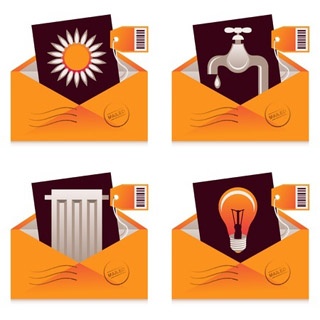 It's important for landlords to understand what happens with the utilities whenever they are in between tenants. Rental properties often include electric, water, gas, garbage and sewage for utilities. Some of these utilities may be worked into the price of the rent to avoid conflict with stopping and starting accounts with the utility providers.
It's important for landlords to understand what happens with the utilities whenever they are in between tenants. Rental properties often include electric, water, gas, garbage and sewage for utilities. Some of these utilities may be worked into the price of the rent to avoid conflict with stopping and starting accounts with the utility providers.
However, in many cases landlords expect tenants to take care of the utilities and even put them in their own name. If this is the case, what will you be dealing with if it takes just a few days to get a new tenant into the property or if it takes a few months?
Using a Revert to Owner Agreement
The Revert to Owner Agreement is one of the best and most common ways to handle the utilities. This agreement is also known as the Landlord Interim Billing Agreement. It's an agreement with the utility companies, which makes the utilities automatically revert to the landlord in between tenants. This helps to ensure nothing gets shut off in the property.
The landlord will need to sign up for the utilities first. Then, when a tenant signs up, they will make the tenant responsible for the bills for the lease period. If the tenant moves out and cancels the utility, it will revert back to the landlord.
Benefits of Using a Revert to Owner Agreement
There are many benefits that come along with this type of agreement for the utilities, which include:
- Cost: Landlords won't needs to deal with any issues coming from disconnected utilities, such as frozen pipes or cleaning crews not having water to do their job.
- Convenience: Once this agreement is put in place, the landlord doesn't have to worry any longer with move-ins and move-outs.
- Consolidation: If a landlord has multiple properties, they can put them all on one monthly statement.
- Contract: This contract provides security and safety for the landlord.
If you're worried about the utilities of your rental property, using a Revert to Owner Agreement will help.
